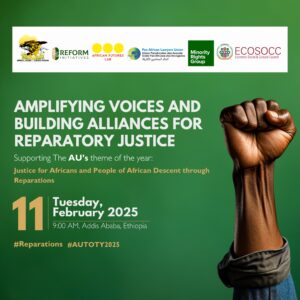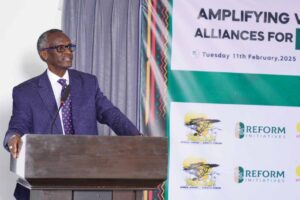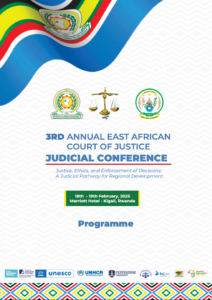Presented at the CSO event on the margins of the AU Summit 2025 on the theme of the year.


AMPLIFYING VOICES AND BUILDING ALLIANCES FOR REPARATORY JUSTICE AND HEALING - A PAPER BY HON. JUSTICE ISAAC LENAOLA.
Presented at the:

Ethical Dilemma in Regional Courts: Ceding Sovereignty, Balancing Impartiality, and Regional Interests
The establishment of regional courts has significantly impacted international law by promoting justice, economic integration, and human rights within their regions. For the purposes of our discussion, examples include the East African Court of Justice (EACJ), the COMESA Court of Justice, the ECOWAS Court of Justice, and the former SADC Tribunal. These courts enhance cooperation among member states and ensure adherence to regional treaties, despite each having its own legal framework. However, regional courts face dilemmas based on challenges in the environment in which they operate. They are constantly faced by challenges to their jurisdictions by member states who are often reluctant to cede sovereignty. Coming from member states which may have interests that may not always align with the regional interests may seemingly present challenges to their impartiality, but this is not the issue. The regional courts are bound by the treaties, laws and legal principles governing their regional economic community (REC) and their allegiance is to those laws and not any national interests. The challenge for the regional courts is the enforcement of their decisions by member states which may unethically prioritise national interests over regional interests, under the guise of protecting their sovereignty. It is therefore political challenges that surround the operation of the courts that present dilemmas which are crucial for panelists to address.
